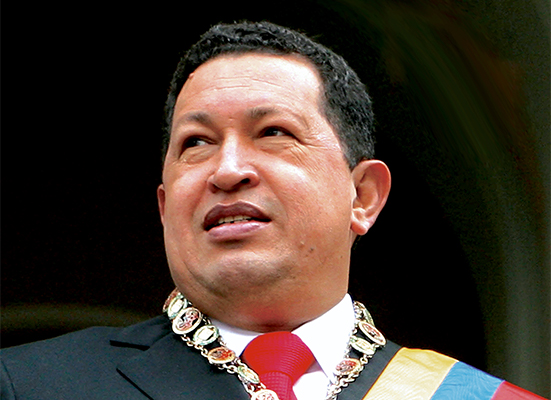Skip to content

By Michael Jay Tucker
Executive Summery: Conservatives and libertarians point to Venezuela’s collapsing economy as proof that “government doesn’t work” and that socialism inevitably leads to dictatorship. In fact, the evidence suggests that the country’s troubles stem from the dark triad of incompetence, arrogance, and populist government that in some ways prefigured Trump.
There is a fascinating article in the current issue of the New York Review of Books. In Hell of a Fiesta, Enrique Krauze looks at the how Venezuela went from one of the most successful nations in Latin America to a failed state on the road to either chaos or totalitarianism, or both—a kind of Syria that speaks Spanish.
Conservatives, some libertarians, and other self-described defenders of economic liberty, point to Venezuela as proof that socialism inevitably leads to tyranny and starvation. They can argue that the nation was prosperous under right-wing governments that favored “free enterprise,” and a disaster after the late Hugo Chavez, and after him, his disciple Nicolas Maduro, instituted their own version of Marxism.
Krauze does not reference this Conservative argument against socialism and/or government “interference” in the economy, but his essay is a powerful refutation of it all the same. As he makes clear, Venezuela’s descent into madness was more complicated than Right would have us believe.
Specifically, at the heart of the Venezuelan tragedy was something called the Petroleos de Venezuela (PDVSA).
PDVSA was a state-owned corporation, what was sometimes called (in my lost youth) a “parastatal,” an organization which combined features of both a private corporation and a publically owned utility. It was Venezuela’s state owned oil company.
For many years, PDVSA was the jewel of the Venezuelan economy. It managed the company’s oil business, and did so efficiently and with dispatch. It was clean (almost notorious for its incorruptibility), effective, efficient, apolitical, largely autonomous, and profitable. Every year, it deposited in the Venezuelan Central Bank a quite tidy little sum that helped keep taxes low and funded many a worthy bit of infrastructure.
Despite this success, which would have warmed the heart of any capitalist, it was and remained a state-property. That is, it was owned by the Venezuelan government, and its profits went to the Venezuelan people. In other words, it was a socialist enterprise.
It might not have been recognized as such because, for most of its existence, Venezuela’s governments were either “conservative,” or “liberal,” and both those groups in South America are strong supporters of free enterprise. But, all the same, by any rational measure, that’s what it was…social democracy on the hoof.
Ah, but there was a problem in the equation. Venezuela was a class and caste conscious nation. At the top, and in the middle, was a relatively smaller population of individuals who saw themselves as “white,” and sometimes thought of themselves as being as much European as they were Venezuelan. Below them in rank and status were larger numbers of mixed race people, many of them of desperately poor.
Enter Hugo Chavez…who, like the common people, was mixed race, and who took power via a populist revolt in their name.
Chavez knew that the PDVSA was a plum, and he proceed to pick it. He ended the company’s autonomous status, replaced competent personnel with his own political supporters (some of whom couldn’t have run a lemonade stand, much less a complex enterprise), and generally turned it into a huge patronage network whose whole purpose was to reward his faithful servants and punish everyone else.
And, of course, the result was disaster. The PDVSA careened out of control, and took down most of the rest of the economy.
But notice what happened here. There was not a nationalization. The actual ownership of the PDVSA did not change. No one took over a successful private enterprise and turned it into a money-losing state organization. It was simply transferred from an efficient set of managers and employers to an inept collection of party apparatchiks.
Thus, the villain of the story wasn’t socialism. It wasn’t liberalism. It wasn’t government. It was Chavez, who believed ….as God was his witness… that he was a second Bolívar, a Great Man of History and Destiny, fated to remake the nation and maybe all of Latin America in his own image…and whose ideology was named after himself, chavismo.
And the Conservative argument…the cry that “government doesn’t work”…falls into ruin…
Though, there is a lesson here for us…for those of us in these ever more dis-United States of America…but it has nothing to do with economic liberty or socialism…
It has to not with economics, whether Right or Left…but with narcissists, and populism, and tyranny…
For Krauze ends his essay with a meaningful aside. He notes simply that the United States itself seems to have developed a similar illness, “…under Donald it has fallen into its own sort of chavismo.”
And should we find ourselves in similar straights…in an age when the economy collapses and hunger stalks the streets and tyranny is on the horizon..
We will remember who to blame.
Trumpismo.
Scroll To Top

